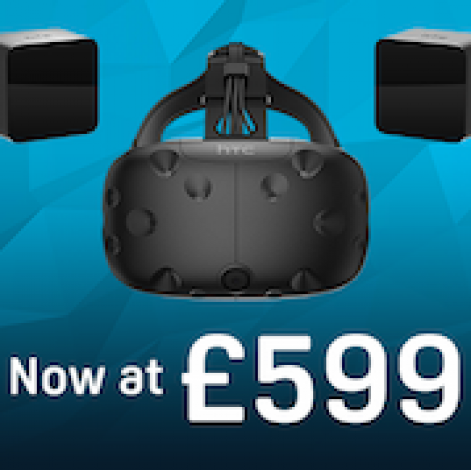We ask our industry panel - the brightest and sharpest VR professionals from around the world - one question about the XR industry, business, technology or trending stories every week.
Question: It’s been an interesting time for HTC Vive. First we heard that the Vive would benefit from a £200 price cut, then came the rumours the company is considering selling its Vive division. Are the two connected, suggesting the Taiwanese firm is struggling financially?
With a dwindling smartphone market, what about if HTC confounds the expectations of industry analysts from the likes of Bloomberg and actually moved away from that sector to focus on VR? How would that play out?
The Oculus price cut put competitive pressure on HTC who needed to respond in kind.Debby Ruth
Debby Ruth, Senior Vice President of Global Entertainment and Media at Magid
“Our research shows that price was a factor for 64% of those who intended to purchase VR but chose not to, showing significant opportunity for manufacturers to grow. The price cut from HTC is likely just normal market dynamics and not any indication that the firm is struggling. The Oculus price cut put competitive pressure on HTC who needed to respond in kind.
“Sony announced a planned price drop for their VR equipment as well, further signaling the market is responding to consumer concerns about price. Vive is making moves to serve the growing location-based VR industry. This seems a prudent near-term strategy while the space evolves and matures.”

Price cuts offer jumps in sales, moving procrastinators and stimulating public interest.Brynley Gibson
Brynley Gibson, Head of Studios at Curve Digital
“It’s no surprise that HTC have made the drop following Oculus' move. It keeps them in line and competitive. Not to be left out, we’ve also seen PlayStation jump on the bandwagon and shave a little off their bundle too.
“Price cuts offer huge jumps in sales via a combination of moving procrastinators over the line and stimulating public interest once more. They aren’t a big story, just part of the standard cycle on maximising sales. One can't help think that Valve are winning bigly between the two of them in this relationship, but I hope it’s not too sour for HTC and the partnership continues to the next iteration as together they have delivered a great offering so far.”

Spinning off Vive into its own company may give Vive room to gradually grow and secure investment for the long-term.Craig Chapple
Craig Chapple, Editor at PocketGamer.biz
“Taking a step back for a minute, this story appears to have been caught so early it's as if the HTC leadership has only just floated the idea around to explore options. Nothing of this feels particularly serious at the moment - though the fact the question of what to do with Vive has been asked is telling.
“It may getting one over on Oculus right now, but VR is struggling to really take off at the moment and requires more patience. I can't see the benefit in HTC cutting its losses completely and as Bloomberg notes, it may be tricky to find a buyer anyway.
“With the company itself making significant losses across its businesses (it made losses of around $500 million in 2016 and continues to incur losses), spinning off Vive into its own company may give Vive room to gradually grow and secure investment for the long-term while HTC focuses on recovering its flagging smartphone business - which VR can't replace.”

Google needs to buy HTC, killing the phones and keeping the patents.Dean Johnson
Dean Johnson, Head of Innovation at Brandwidth
“I’ve had a love/hate relationship with HTC’s Vive since before launch. I love the way it works and has empowered room-scale creativity for the VR industry. I’ve hated the shambolic business set up and the potential it will go down with the sinking HTC ship. In an industry full of promise and opinion, Vive appears rudderless without a figurehead and has suffered from the lack of a Zuckerberg or Luckey. For all their faults, they give a face to these black plastic lumps of tech.
“Google needs to buy HTC (it probably already has), killing the phones and keeping the patents, then increasing budgets, platform breadth and personality for the Vive. Tilt Brush was always the key to the door and the brand needs to move beyond cash-rich early-adopters and enterprise application.”













